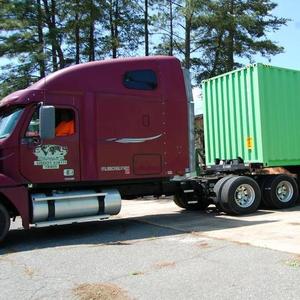Algae.Tec delivers PBR to Reliance's Jamnagar oil refinery

Photo: Algae.Tec Ltd.
May 5, 2015
BY Ron Kotrba
Algae.Tec announced May 5 that is has shipped its first algae photobioreactor to Jamnagar province in India as part of its contract with Reliance Industries to build an 84-gallon-per-day pilot plant at the world’s largest oil refinery.
The pilot plant is part of contractual arrangements that are fully funded by Reliance, Algae.Tec stated.
This first container houses the algae photobioreactor assembly that will take CO2 from the refinery and use it for algae production, which in turn will be used for the production of biofuel.
“This is a major milestone for the company, which leads to the establishment and commissioning of the pilot plant in an industrial location within the Reliance compound,” said Algae.Tec Managing Director Peter Hatfull.
Advertisement
Advertisement
In January, another algae company, Algenol, announced deployment of its algae production system at Reliance’s Jamnagar oil refinery.
Advertisement
Advertisement
Related Stories
The USDA significantly increased its estimate for 2025-’26 soybean oil use in biofuel production in its latest World Agricultural Supply and Demand Estimates report, released July 11. The outlook for soybean production was revised down.
U.S. fuel ethanol capacity fell slightly in April, while biodiesel and renewable diesel capacity held steady, according to data released by the U.S. EIA on June 30. Feedstock consumption was down when compared to the previous month.
The U.S. EPA on July 8 hosted virtual public hearing to gather input on the agency’s recently released proposed rule to set 2026 and 2027 RFS RVOs. Members of the biofuel industry were among those to offer testimony during the event.
The USDA’s Risk Management Agency is implementing multiple changes to the Camelina pilot insurance program for the 2026 and succeeding crop years. The changes will expand coverage options and provide greater flexibility for producers.
The USDA’s National Agricultural Statistics Service on June 30 released its annual Acreage report, estimating that 83.4 million acres of soybeans have been planted in the U.S. this year, down 4% when compared to 2024.
Upcoming Events










